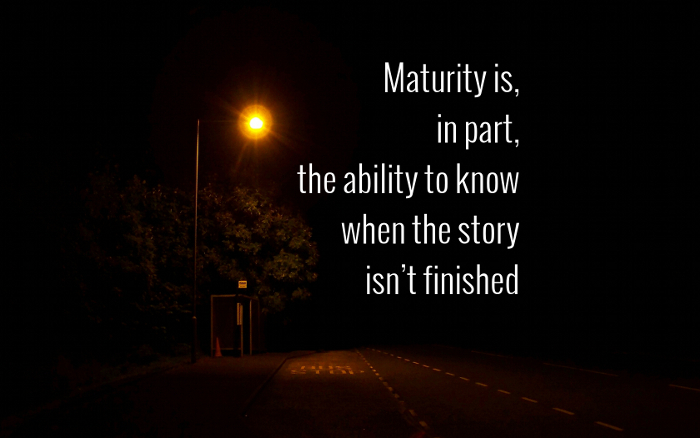
I feel like God wants me to share with you some ideas that will help you find and attract the right person to date and eventually marry. I learned some of this by doing it, and some of it the hard way, by not doing it. Trust me—you don’t want to do this the hard way. You’ll avoid a whole world of hurt by doing it the easy way.
Here goes:
#1 Make Jesus Christ the center of your life. He needs to be first place, first consideration, Lord and Savior, no question, no competition, no doubt about it. Here’s why:
(a) It’s only fair. If you don’t give God your best, why should He give you His best choice for you in a girlfriend/boyfriend/husband/wife?
(b) This clarifies your priorities and makes everything in your life much, much easier. The Bible says the way of the transgressor is hard, but Jesus said, “My yoke is easy and my burden is light.”
(c) You want to attract someone from the opposite sex who shares this value. I’m 58 years old. I’ve watched the lives of people who have ignored this. Their lives have been filled with pain.
(d) It’s the first step in getting anything you want. The Bible says,
Seek the Kingdom of God above all else, and live righteously, and he will give you everything you need. Matthew 6:33 NLT
#2 Let yourself be loved by God. This too is incredibly important. Most people want that person of the opposite sex to fill that need for love in their lives. Big mistake.
Here’s why: There will come a time in your relationship when that drug of attraction wears off (and, yes, there is something biochemical in the brain that happens with early romance), and suddenly that other person is tasked with the responsibility of being your little god. That person will fail, and you will be in enormous pain because of it. Meanwhile, if the other person is doing the same thing, that person will have all kinds of unrealistic expectations of you. This is the main reason so many marriages end in divorce.
While romance and marriage does add a beautiful dimension to your life, it also will challenge you at your core. I never knew how self-centered, angry and impatient I was until I got married. Marriage forced me to grow up in ways I never knew I would need to do. If / when you have children, your need to grow up will be put on steroids. Again, your children will add a beautiful dimension to your life. I cannot imagine my life without my children. But raising children will challenge you, and they, more than anyone else, need you to be up for that challenge. They need you to be emotionally whole. The only way you’re going to get there is to let yourself be loved by God.
When you let yourself be loved by God, His love fills up the hurting places in your life. You are far less vulnerable to sin, addiction, and unhealthy romance. It’s a paradox. The less you need that other person to be your god, the more you are set free to really love and enjoy that other person.
I’ve written elsewhere about transformational or Theophostic prayer. That’s the best technique I’ve found to let yourself be loved by God. It’s not the only way to let yourself be loved by God, but it’s a good way. Other approaches to soaking in the love of God involve prayer, praise, worship, taking walks with God and so on.
To have a successful romance and a successful marriage, you will need to figure out that you are not the center of the universe. If you allow yourself to deeply experience the love of God, that won’t even be an issue for you. If you don’t, figuring out that you aren’t the center of the universe will be a huge tragedy. Trust me, we all think we are, and it takes time to figure out we aren’t.
#3 Fix any relationship problems you currently have. Sorry. Nobody gets a free pass on this one. If you need to forgive, forgive. You can’t take bitterness into a romance or into a marriage and expect it not to pollute this new relationship that you care so much about. It will show up. It will come back to bite you. Again, I have written extensively elsewhere on the process of forgiving others. Contact me if you need that.
#4 Determine to remain sexually pure all your life. No sex with the person you’re dating until after the wedding. (And no seeing how close you can get to intercourse without doing it. If it looks or feels sexual, don’t do it.) This is a form of respect for the person you date and the person you end up marrying. We live in a culture that doesn’t understand this. I get that.
Sex was designed by God for the permanent relationship of marriage. To engage in sex with another person outside of marriage cheapens sex, cheapens the other person, cheapens yourself, and defies God’s command.
When you have sex with someone, you leave part of your soul with that person. I don’t know that you can ever get that part of your soul back. So don’t give yourself away outside of marriage.
God wants you to have the best experience with sex. The devil lies and says the best experience means jumping into bed with someone that you’re not married to. But that is a lie because shame, guilt and competition will come back to haunt you.
By having sex outside of marriage you erode the trust of your spouse once you get married. (If he / she couldn’t stay pure before we got married, what guarantee do I have that he / she will be faithful to me now.) In addition, you create damaging doubts in the mind of your spouse. (Would my spouse rather be with that other person?)
Sex was designed partly as a glue to hold marriages together. This creates a safe, stable environment for children when they are young and vulnerable. God’s eye is always on the most vulnerable person in the room.
If at some point you slip on this, start over. Determine to be sexually pure from that day forward.
#5 Learn to listen. Understanding is an incredibly important part of a healthy relationship. Learn to get other people to talk about themselves. Focus in on their stories. Make them the center of attention. Read up on this if you need to. Learn to become a good conversationalist. Learn to listen with empathy. Learn how men and women process this differently. Learn to see things from the other person’s point of view, even if you disagree. Learn to understand. Make this a goal. It will serve you well.
Don’t forget this one. It opens doors for you. Work at it. Become good at it.
#6 Make respect a big priority. A while back someone claimed that he could listen to a married couple talk for fifteen minutes and predict with about 90% accuracy whether they would be divorced in the next two years. He had solid research to back up his claim. How did he do it? He simply listened for respect. If the two people respected one another, the marriage survives. If they didn’t, it dies. So practice respect. Respect other people’s boundaries. Respect their wishes. Respect them as people. Respect their views, even if you disagree. And make yourself worthy of respect by being a person of integrity, of character, of responsibility.
Both men and women need to be respected. For men, the need to be respected may be a little higher. And women want to marry a guy they can respect. For most men, that means they need to grow up. A lot.
If you can’t respect the person you’re dating, break up. Now. Don’t wait.
#7 Earn and deserve trust. Your spouse / boyfriend / girlfriend needs to be 100% safe with you all the time. All the time. That means if you’re super angry, that other person is still safe. Trust is closely connected with integrity. Integrity means you’re doing what’s right, even when nobody is watching. Trust means you keep your promises. Trust means you apologize when you make mistakes, and you do your best to fix it. Make yourself worthy of trust.
And you need to be 100% safe with this other person. If you cannot trust the person you are dating, break up. Now. Don’t wait. Trust is essential. No long term healthy relationship is possible without trust. If you don’t have trust, the only thing left to keep the relationship together is fear, and you don’t want a relationship based on fear.
#8 Love. I mention this toward the end for a reason. If these other elements are not present, then it’s easy to be fooled by biochemistry, infatuation or lust and mistake these things for love. Love means you value the other person and they value you. You care for and about each other. You are good to and for each other.
Learn the other person’s love language and speak it. Love is, at its core, unselfish. Read 1 Corinthians 13. You can measure yourself as a lover from that chapter. If you let yourself be loved by God, then you will have a reservoir of love for the other person, even in those dry times when you may not feel like you’re getting much love back.
It also helps if you like each other. It helps if you like hanging out together, doing some of the same things.
#9 Fish where the fish are. What’s wrong with the picture above? You can’t fish from a bucket and expect to catch any fish.
This is where mega churches, Christian colleges, YWAM DTSs and mission trips are your best friend. There are good groups of Christian single adults in most places. Find out where they are and when they meet. Go to the meetings. You’ll find quality people there. And I don’t mean churchy people. I mean quality people. Save up money and go on a missions trip with a group. You’ll get to know some good people, and they will get to know you. I attended Moody when I was a college student. People used to call Moody Bible Institute Moody Bridal Institute. Plenty of people attended at least partly because they wanted to find a good spouse. We laughed at it back in the day, but in retrospect, it wasn’t a bad idea. At all.
#10 Make a list. Make a list of the qualities you want in a spouse. Write them down. Pray through that list every day. You get what you pray for. I’ve seen this happen with several people. They followed this advice, and they got the spouse of their dreams. Try it. It just might work for you.
The great thing about all of this is that ALL of these things are under your control. You can make ALL of these things happen—if you want to. A beautiful romance and a beautiful marriage are not fairy tale things that just happen to happen to you. You have enormous control over whether they happen or not. Yes, there is the element supplied by God—bringing the right person into your life, but if you follow these things, then finding that right person becomes much, much easier.



























